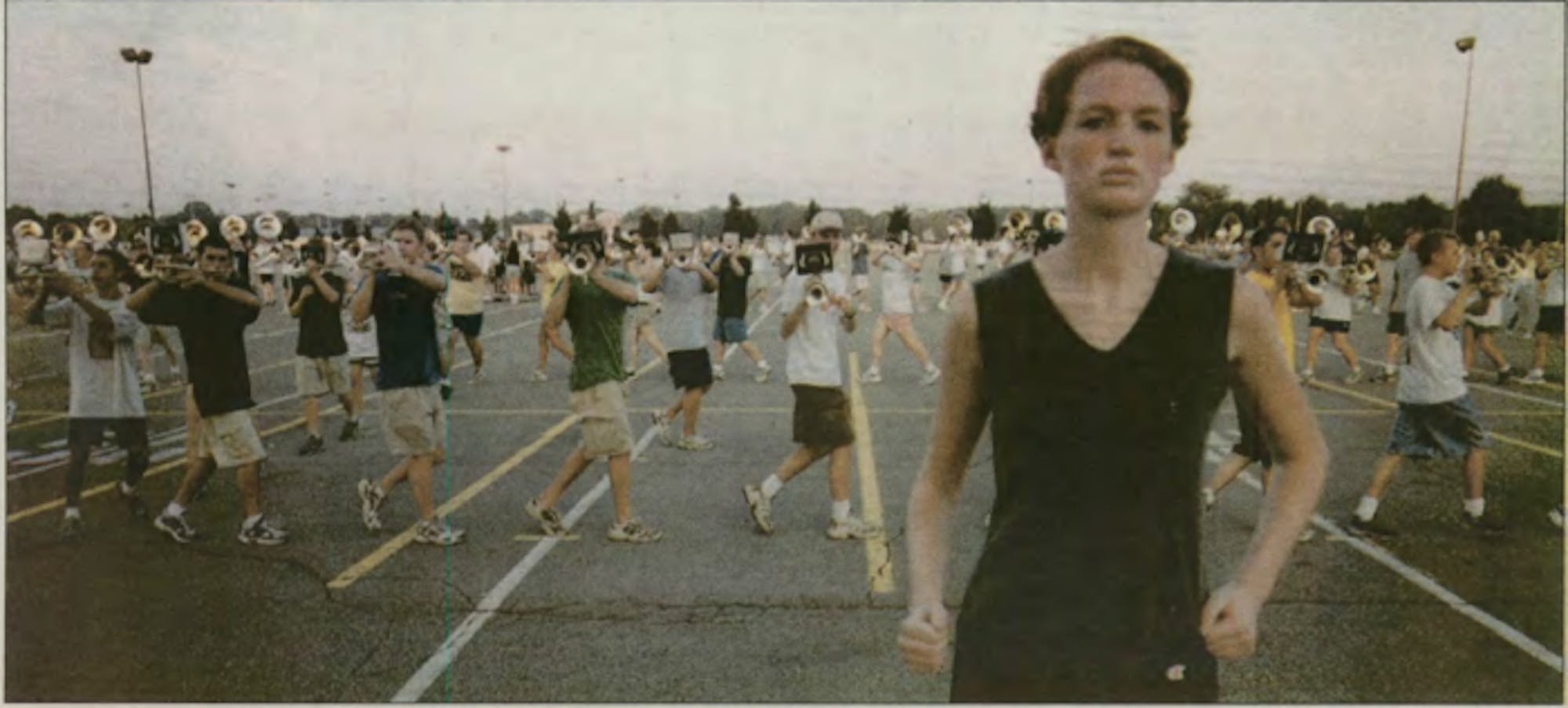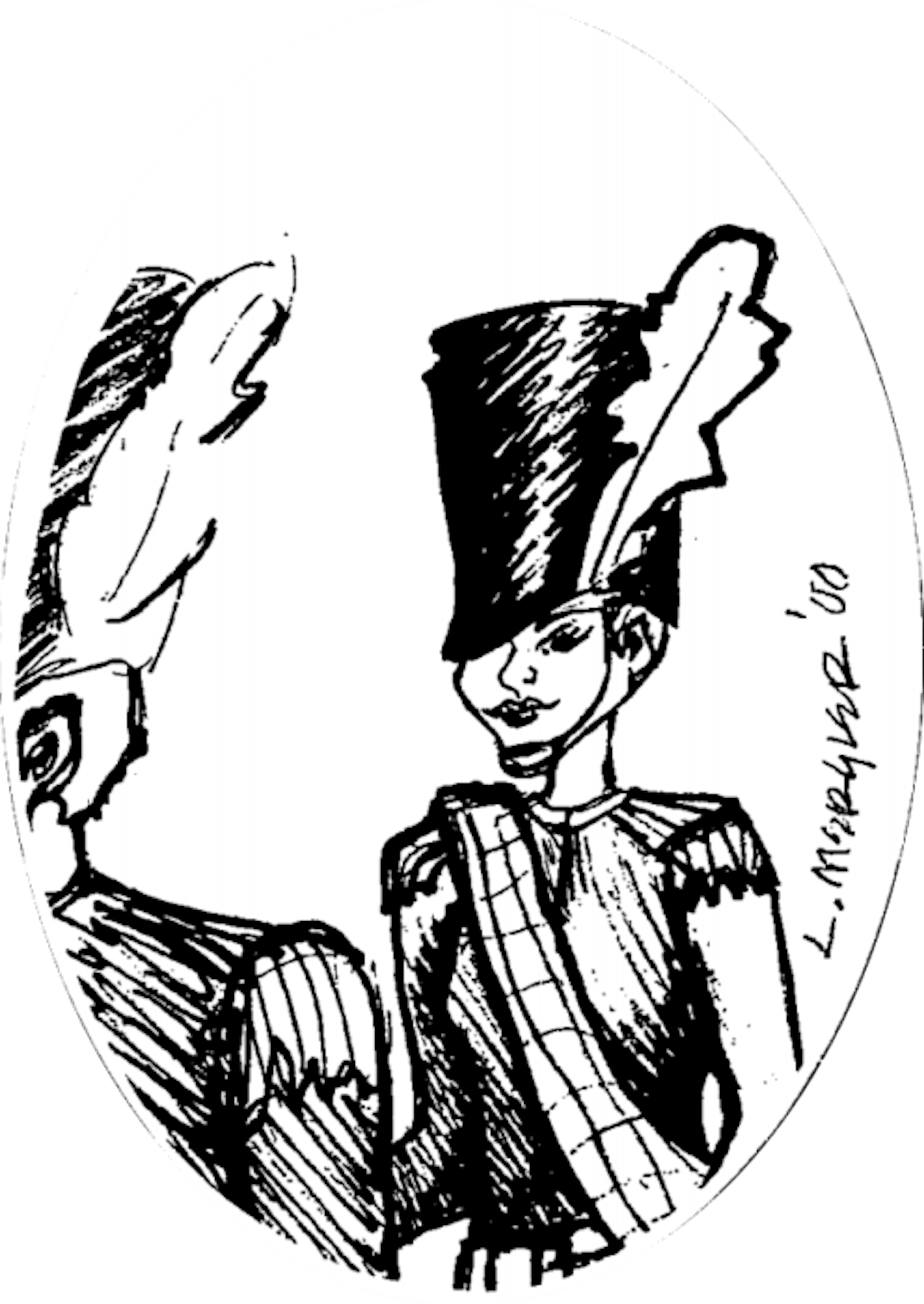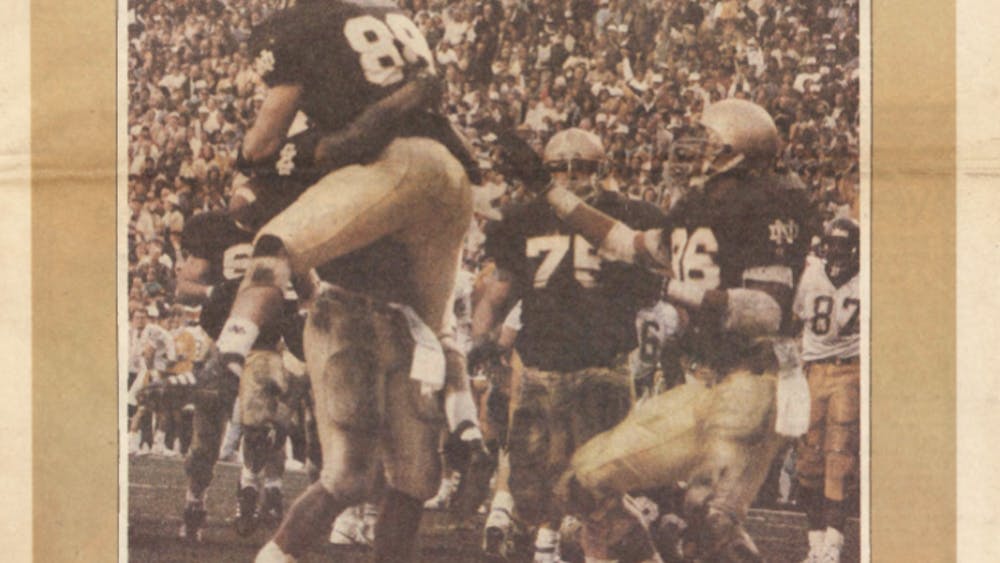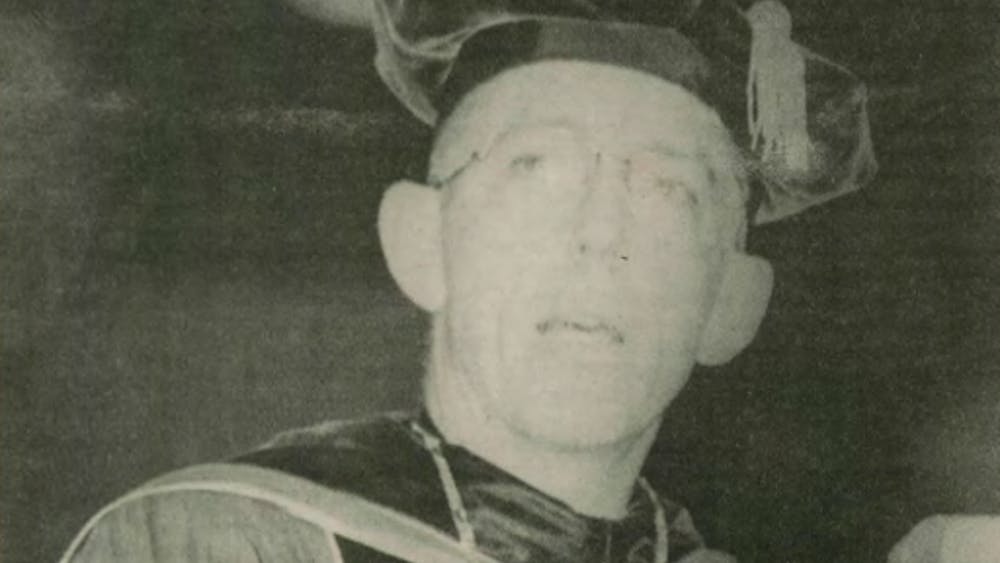

Molly Kinder auditions, joins the Irish Guard
Sept. 1, 2000 | Colleen McCarthy | Researched by Renee Pierson
In the fall of 2000, Notre Dame senior Molly Kinder became the first woman to become a member of the Irish Guard. She auditioned her junior year “kind of for kicks,” she told The Observer, but failed to make the group. Kinder auditioned again the following year and finally achieved a goal set at the start of her freshman year: becoming a part of the Irish Guard. In joining the ranks of one of the University’s most iconic traditions, Kinder ended the group’s 51-year all-male tradition.Standing at 6-foot-3, Kinder met the height requirement that was said to have barred women from joining the Guard in previous years. Kinder put in months of hard work in preparation for her final audition in the months leading up to her senior year, even while studying abroad.“I practiced marching a lot in the streets of Chile and I think the people thought I was insane,” Kinder said. “When I got home I practiced marching on the football field and just continued to prepare mentally and physically for the audition.”
Notre Dame student disapproves of Kinder’s position
Aug. 31, 2000 | Anthony Farina | Researched by Elizabeth Carter
Kinder’s acceptance to the Irish Guard represented a historic moment in Notre Dame’s history. However, not all members of the Notre Dame community supported her presence on the Guard. In response to the news of Kinder’s selection, Anthony Farina (’99) wrote a Letter to the Editor to express his disappointment.The letter opens with pointed criticism of Dye, the band director who allowed Kinder to join the Irish Guard. Farina questioned the motives behind Dye’s decision, implying that Kinder’s acceptance to the Irish Guard was due to a desire for political correctness rather than her own aptitude for the position. “These are hardly reasons to end a 50-year, time-honored tradition,” Farina argued.Emphasizing the importance of tradition at Notre Dame, Farina continued to criticize Dye by accusing him of “forever defaming the image of the Irish Guard.” Declaring his lack of sympathy for both Kinder and Dye, Farina suggested that the two deserved any criticism they faced because “they willingly broke a tradition and put themselves in this position.”“I do feel somewhat sorry for the other members of the Irish Guard,” Farina added, “because they will now find it difficult to continue their own traditions with a female among them and will likely receive unjustified scrutiny if they should exclude her from any activity.”Farina further expressed his disapproval by adding that Dye’s decision caused him “feelings of anger and nausea.” Concluding with his wish that Dye would eventually regret his choice, Farina’s hostile letter exemplified the opposition Kinder faced as the first female member of Notre Dame’s Irish Guard.Band’s Head Drum Major responds to disapproval of Kinder
September 1, 2000 | Jim McFarlin | Researched by Maggie Clark
But where there was criticism, there was also praise. Kinder’s addition was also a source of pride and an example of progress in the eyes of other members of the Notre Dame community. In particular, Jim McFarlin (‘01), the band’s head drum major at the time, called upon students to take pride in the Guard’s new addition. Writing in response to Anthony Farina’s article claiming that Molly Kinder was wrong in breaking tradition, McFarlin argued Farina misrepresented the Guard's “traditions” — although a woman had never been in the Irish Guard, there was no rule preventing women from joining.“The fact that a woman has never been in the Guard before is not a ‘time-honored tradition,’” McFarlin argued, “it is a matter of circumstance.”









